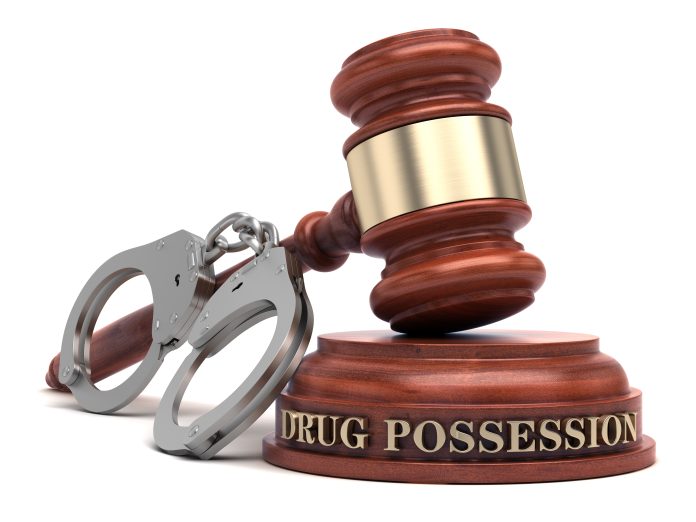Drug possession laws in countries like the United States vary significantly by state and substance, leading to a complex tapestry of regulations and penalties. Understanding these can be crucial for individuals caught in legal dilemmas or those aiming to comprehend the broader implications of drug policy.
Read on to learn the drug possession penalties and consequences.
Legal Distinctions In Drug Possessions
Drug possession charges in the U.S. encompass a broad spectrum, from simple misdemeanours to serious felonies, influenced by various factors. These include the type and amount of drug involved, the defendant’s prior criminal history, and the circumstances surrounding the arrest. For example, if you’re facing misdemeanor marijuana possession in Los Angeles or similar locations, it carries distinct legal implications compared to being arrested for possession of more strictly regulated substances like heroin or cocaine. As such, consulting with an experienced lawyer would be an excellent way to deal with the case more effectively.
Additionally, the legal treatment of substances with medicinal uses, such as marijuana, varies widely across states. While some states have legalized marijuana for medical and even recreational use, it remains classified as an illegal substance under federal law, creating a complex legal landscape.
Federal Vs. State Penalties
At the federal level, drug possession penalties are notably severe, guided by the Controlled Substances Act, which sorts drugs into five distinct schedules. A drug’s abuse potential determines these schedules, recognized medical use, and safety considerations, with Schedule I drugs facing the harshest penalties due to their high abuse potential and lack of medical acceptance. Mandatory minimum sentences are enforced for possession of certain drugs, emphasizing the strict nature of federal drug policy.
In contrast, state laws exhibit a broader range of responses. While some states have adopted more progressive approaches by decriminalizing or even legalizing the possession of small amounts of marijuana, others continue to enforce strict penalties, including substantial fines and incarceration. This reflects a spectrum of legislative attitudes towards drug control.
Misdemeanor Vs. Felony Charges
Misdemeanor drug possession generally involves minor quantities of controlled substances and can lead to various penalties, including fines, probation, or short-term jail sentences. In contrast, felony drug possession charges arise from possessing larger quantities of drugs or more dangerous substances, resulting in more severe repercussions. These can include extended prison terms, hefty fines, and enduring impacts on civil liberties, such as the forfeiture of the right to vote and own firearms.
The classification of a drug charge as a misdemeanour or felony can significantly influence the scope and severity of the legal consequences faced by the individual. It can also help criminal lawyers establish a strong defence strategy that is beneficial during a trial.
Consequences Beyond Legal Penalties
The impact of a drug possession conviction can profoundly affect the offender’s life. Challenges in securing employment often arise, as many employers hesitate to hire individuals with criminal records. Similarly, finding housing can become an obstacle, as convictions can lead to disqualification from public housing and scepticism from private landlords. Educational aspirations may also be curtailed, with some scholarships and educational loans being inaccessible to those with drug convictions.
Socially and psychologically, the stigma attached to a drug conviction can lead to isolation and strained family relationships. Marginalized communities often face these consequences more acutely, exacerbated by the disproportionate enforcement of drug laws against them.

Rehabilitation And Support Systems
The growing recognition of the counterproductive effects of incarceration for drug possession has led to an increased focus on rehabilitation. Drug court programs, proliferating across numerous jurisdictions, exemplify this shift. These programs eschew traditional punitive measures in favour of comprehensive treatment plans that address addiction’s root causes. Participants receive medical and psychological support and regular monitoring to facilitate recovery and reintegration into society.
Such initiatives underscore a commitment to transforming lives rather than merely penalizing behaviour, which aims to reduce recidivism by equipping individuals with the tools to overcome addiction and reintegrate productively into their communities.
Impact Of Legal Changes
The landscape of drug possession laws has evolved significantly in recent years. A notable trend is the decriminalization or legalization of marijuana in various states, a move reflecting a growing societal consensus that views drug use more as a public health concern than a criminal issue. This shift is partly driven by the acknowledgement of the high enforcement costs associated with drug prohibition and the limited efficacy of such measures in curbing drug use.
Legal reforms aim to alleviate the burden on the judicial system, redirect resources to more effective public health interventions, and reduce the unnecessary criminalization of individuals. Consequently, this can foster a more just and pragmatic approach to drug policy.
Conclusion
Understanding the nuances of drug possession penalties is crucial for individuals who might find themselves navigating the legal system, as well as for policymakers and advocates working towards more just and effective drug policies.
As the world continues to debate and reform its drug laws, it remains important to focus on both reducing the harm caused by drugs and the harm inflicted by punitive drug laws. Rehabilitation and recovery, rather than punishment, should be at the forefront of these efforts to ensure a compassionate and pragmatic approach to drug-related offences.

